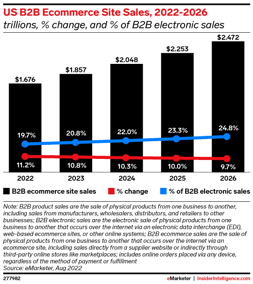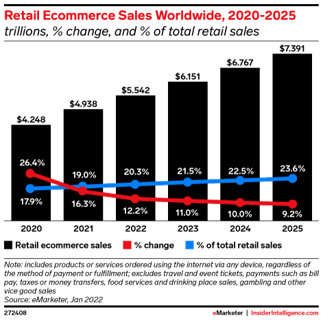Target Audience: A B2B (business-to-business) marketplace is an online platform that facilitates the buying and selling of goods or services between businesses. In a B2B marketplace, businesses can purchase products or services from other businesses, as well as sell their own products or services to other businesses. These marketplaces provide businesses with access to a wider range of potential customers and suppliers, which can help them find new business opportunities, increase sales, and reduce procurement costs. On the other hand, a B2C (business-to-consumer) marketplace is an online platform that facilitates the selling of products or services directly to individual consumers. In a B2C marketplace, businesses can list their products or services, set prices, and manage orders, while individual consumers can browse and purchase these products or services. These marketplaces offer consumers a wide range of products and services from various brands and sellers, often at competitive prices.
Sales Process: The sales process in a B2B marketplace is often more complex than in a B2C marketplace because B2B transactions typically involve negotiations, contract agreements, and multiple decision-makers, while B2C transactions are often more straightforward and transactional. Additionally, the sales cycle in a B2B marketplace is generally longer than in a B2C marketplace because B2B transactions often require a longer lead time for approval, procurement, and fulfillment of the order, while B2C transactions are often more spontaneous and immediate.
Product Offerings: B2B marketplaces tend to specialize in products and services that are purchased by businesses, such as bulk orders of raw materials or specialized software while B2C marketplaces tend to offer a wider range of products that appeal to individual consumers, such as clothing, electronics, and household goods. Additionally, B2B products are often more complex and specialized, tailored for specific industries or business needs, whereas B2C products are often more generic and designed for the general consumer market. B2B marketplaces may offer a narrower range of products, but with a greater depth of options and customization. B2C marketplaces, on the other hand, may offer a wider variety of products, with less emphasis on customization.
Marketing: B2B marketing often relies on a more targeted and personalized approach, using channels such as email marketing, content marketing, and social media advertising. B2C marketing, on the other hand, may use a broader range of channels, including television advertising, influencer marketing, and mobile advertising. B2B marketing messaging tends to be more technical and focused on features and benefits, emphasizing how a product or service can solve a business problem while B2C marketing messaging is often more emotional and focused on lifestyle and brand values. Additionally, B2B marketing often focuses on building long-term relationships with other businesses, using tactics such as personalized content and account-based marketing. B2C marketing, on the other hand, may use tactics such as loyalty programs and referral programs to build relationships with individual consumers.
Overall, B2B and B2C marketplaces have distinct differences in their target audience, sales process, product types, pricing, and marketing strategies. Understanding these differences can help businesses determine which type of marketplace is the best fit for their needs.
B2B channels enable businesses to reach a wider audience beyond their geographic location. With online
B2C channels allow businesses to target a large and diverse customer base. With online marketplaces, 
The decision of whether to sell on a B2B or B2C marketplace or using both channels ultimately depends on the brand’s products, target audience, and business goals. Here are some factors that can help a brand make this decision:
Target Audience: If the brand’s primary customer base is other businesses or organizations, then selling on a B2B marketplace may be the best option. However, if the brand’s products are intended for individual consumers, then a B2C marketplace would be more suitable.
Type of Product: Some products are better suited for B2B marketplaces, while others are more suited for B2C marketplaces. For example, products that are commonly purchased in bulk, such as office supplies or industrial equipment, are typically sold on B2B marketplaces. On the other hand, products that are more commonly purchased by individuals, such as clothing or electronics, are usually sold on B2C marketplaces.
Brand Goals: If the brand’s goal is to establish long-term relationships with other businesses or increase sales volume by selling in bulk, then selling on a B2B marketplace would be the right choice. However, if the brand is focused on increasing brand awareness or reaching a wider audience, then selling on a B2C marketplace would be a better option.
Cost & Logistics: Selling on a B2B marketplace may involve more complex logistics and require more resources, such as specialized software and personnel, than selling on a B2C marketplace. Additionally, B2B marketplaces may have higher fees and require a more extensive vetting process for sellers. These factors should be taken into consideration when making the decision.
Overall, the brand should carefully evaluate its products, target audience, business goals, and logistics to determine whether a B2B or B2C marketplace is the best fit for its needs
aiCommerce is a global digital marketing agency with a focus on retail and eCommerce marketplaces. aiCommerce is primed with decades of digital marketing experience and backed by our 90-day grow and know guarantee, we can help your brand grow across eCommerce channels to gain brand awareness and increase sales. Now is the perfect time to utilize our eCommerce experts to help grow your business. Click the button below to jumpstart your eCommerce growth!